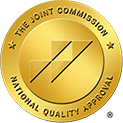
Lap-Band surgery is a life-changing procedure that helps individuals struggling with obesity achieve significant weight loss and improve their overall health. However, the success of the surgery relies on long-term commitment and lifestyle changes. After the initial weight loss, it is crucial to develop strategies to maintain the results and ensure continued success. Here are some tips and tricks for maintaining weight loss after Lap-Band surgery:
1. Follow the recommended dietary guidelines: Your healthcare provider will provide you with specific dietary guidelines to follow after Lap-Band surgery. These guidelines typically include consuming smaller portion sizes, focusing on lean proteins, fruits, vegetables, and whole grains, and avoiding high-calorie and high-fat foods. Adhering to these guidelines is essential for weight maintenance and overall health.
2. Eat mindfully: Paying attention to your eating habits is crucial for long-term success. Practice mindful eating by slowing down, chewing your food thoroughly, and savoring each bite. This allows your body to recognize feelings of fullness, preventing overeating.
3. Stay hydrated: Adequate hydration is important for overall health and weight management. Drink plenty of water throughout the day to stay hydrated and avoid mistaking thirst for hunger. Avoid sugary beverages and opt for water as your primary source of hydration.
4. Prioritize protein: Protein is a vital nutrient for weight management and muscle maintenance. Ensure that each meal includes a source of lean protein, such as chicken, fish, tofu, or legumes. Protein helps you feel full for longer, reduces cravings, and supports muscle growth.
5. Maintain regular exercise: Physical activity plays a key role in weight maintenance and overall well-being. Engage in regular exercise that suits your abilities and preferences. Aim for a combination of cardiovascular exercises, strength training, and flexibility exercises. Find activities you enjoy to make exercise a sustainable part of your lifestyle.
6. Establish a support system: Surround yourself with a supportive network of friends, family, or fellow Lap-Band surgery patients. Join support groups or seek professional counseling to address any emotional or psychological challenges that may arise during your weight loss journey. Having a strong support system can provide encouragement, accountability, and guidance.
7. Set realistic goals: While significant weight loss is achievable after Lap-Band surgery, it is important to set realistic and sustainable goals. Focus on gradual weight loss rather than rapid results. Aim for a healthy weight range recommended by your healthcare provider and celebrate non-scale victories, such as improved energy levels, increased mobility, and better overall health.
8. Track your progress: Keep a record of your food intake, exercise, and weight loss progress. Regularly monitor your habits to identify any potential pitfalls or areas for improvement. Tracking your progress can help you stay accountable, identify patterns, and make necessary adjustments to maintain weight loss.
9. Practice stress management: Stress can contribute to emotional eating and hinder weight maintenance efforts. Find healthy ways to manage stress, such as engaging in relaxation techniques, practicing mindfulness or meditation, pursuing hobbies, or seeking professional support if needed. Developing effective stress management strategies will support your long-term weight loss goals.
10. Stay informed and engaged: Continuously educate yourself about nutrition, weight management, and the latest research related to Lap-Band surgery. Stay connected with your healthcare provider and attend follow-up appointments to address any concerns, receive guidance, and make necessary adjustments to your plan.
Maintaining weight loss after Lap-Band surgery requires a commitment to long-term lifestyle changes. Embrace these tips and tricks to develop healthy habits, foster a positive relationship with food and your body, and achieve lasting success. Remember, your healthcare provider and support system are valuable resources throughout your weight loss journey.







